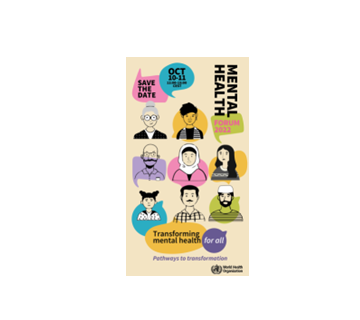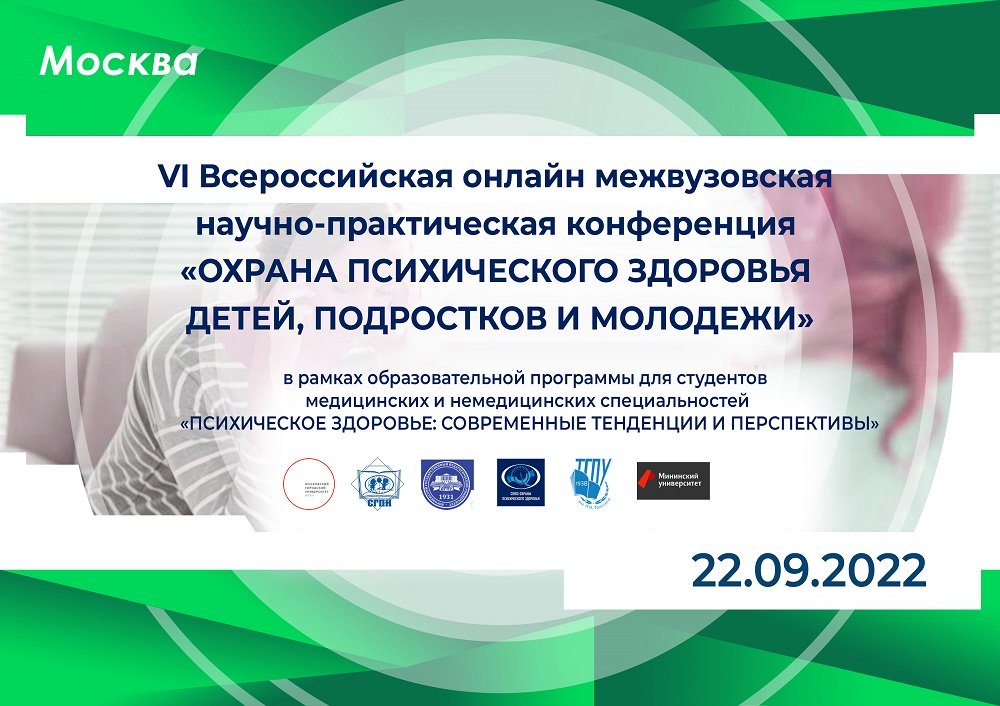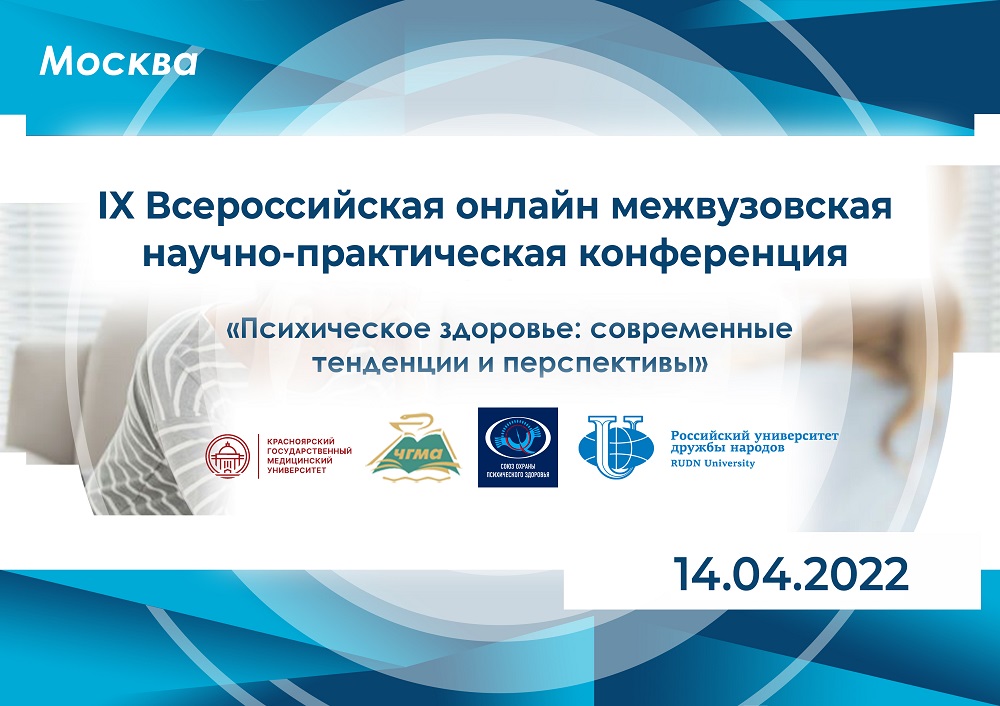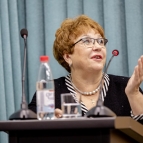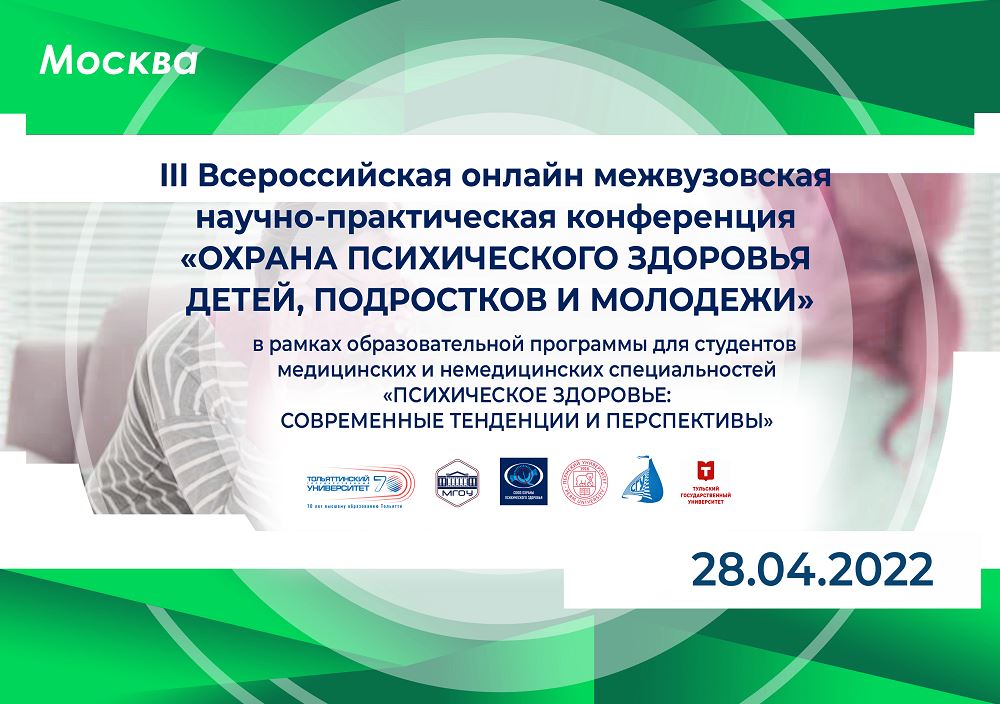WELCOME TO SCHOOL!
based on the concept-paper of the
III Congress on Mental Health: Meeting the Needs of the XXI century” (26-28 June 2020)
Two days left before the start of the new school year in Russia. It seems to us appropriate today to recall the reasons that may affect how it will be for our children, how it will affect their well-being and health.
According to researchers, the school age is considered one of the most difficult in terms of mental health preservation
[1]. By the age of 8–9, the child already has a well-established type of higher neural activity. Yet during this period, the child’s social personality is formed, through interactions of teachers, parents, and peers particularly in the school setting. The nature of these relationships, as well as the educational environment, e.g., the content and methods of instruction, goals of education and age-appropriateness of the educational materials all affect healthy psychological growth of children
[2] while conversely, unfavorable conditions or experiences in these relationships create risks for the child’s mental health. To insure the former positive outcome, international studies have shown that educators need to be taught basic mental health strategies, including measures to prevent bullying and harassment, as well as effective ways to manage disruptive behaviors
[3]. Studies also show that academic performance, and even outstanding educational achievements, are not related to children’s mental well-being and the possibility of successful realization of their accumulated potential in the future. On the contrary, perfectionist attitudes and the dominance of orientation for success can lead to emotional maladjustment as frequently as pedagogical neglect
[4]. Problems during schooling, coupled with problems at home in upbringing during this period can lead to dysfunctions, such as oppositional defiant behavior, engaging in dangerous or illegal activities, suicidal ideation, and withdrawal by obsession with the digital world
[5]. Research shows that 50% of mental disorders occur before the end of childhood
[6], with anxiety (6.9%) and attention deficit/hyperactivity disorder (ADHD) (8.2%) being most common
[7].
Recognizing early signs of problems and providing appropriate support can prevent the escalation of symptoms and improve the child’s mental health for the present and future.
Adolescence presents the important stage for the transition to adulthood. The processes of separation from parents while solidifying self-determination and building new relationships is accompanied by a strong dependence on social environment. This period presents many crises on many levels, which increases the risk of mental illness.
Statistics bear out this vulnerability, given that 75% of mental disorders occur before the end of adolescence
[8]. According to research, 1.3 million adolescents died in 2012 for reasons related to, among other things, these illnesses, including suicide and interpersonal violence
[9]. In 80% of adolescents, insufficient physical activity was noted, which can be co-morbid with non-drug addictions (e.g., Internet addiction) and eating disorders. Additionally, a common cause of death for adolescent girls is suicide due to unwanted pregnancy and sexual abuse. Behavioral disorders that tend to develop in this stage of adolescence are usually associated with drug use, crime, antisocial behavior, interpersonal and family problems, and poor physical health
[10].
Recognizing the signs of mental disorders is necessary for timely referral to specialists of any adolescent suffering such problems. Teachers, educators, school psychologists, counselors and nurses, parents, and peers must be educated to notice the signs of distress, with a planned response scheme. This can include referrals to specialists in various fields, including counselors and general practitioners.
Children with signs of giftedness in varied fields of special abilities or who show accelerated development in select intellectual or behavioral functioning may also manifest specific problems of mental imbalance and/or other disorders in the emotional-volitional sphere. These can include advancement in a particular ability and lag in other subjects (e.g., the combination of a high level of mathematical skills with dysgraphia); inadequate response to external stimuli and difficulties in adapting to the environment; speech problems or increased exhaustion and inability to endure activities requiring long-term physical or mental effort
[11].
While gifted characteristics are healthy for the child in the terms of self-esteem and social interaction, specific social and emotional characteristics of gifted children can lead to psychological risks. These demand the need to design special programs for the preservation of these children’s mental health. Further, such conditions in the child, when combined with lack of understanding from parents, educators, psychologists, and/or medical workers, can lead to erroneous diagnoses and inadequate treatment
[12].
Particularly noteworthy are children without parental care. Loss or separation from parents for any reason represents a serious event for the child, which can provoke the development of various forms of psychological and mental disorders. Resulting fears, insecurity, resentment, feelings of rejection, dependence on unfamiliar people and facing unstable or dangerous external circumstances can lead to varied emotional and behavioral symptoms, including but not limited to, loss of self-esteem, depression and suicide, withdrawal, anger and aggression, impaired intellectual and cognitive activity and development. It is crucial to mitigate and compensate for the loss and create favorable development conditions, to whatever extent possible, with services including provision of foster and adoptive parents or guardians, living environments in orphanages or boarding schools with specialized programs, and specialized training of teachers and counselors.
It must be remembered that a considerable number of children and adolescents in today’s world face difficult life situations. They can be subjected to physical, emotional and/or sexual violence, military action, slavery, trafficking, homelessness, poverty and dysfunctional families; which leads to suffering from mental dysfunctions, retardation or other disabilities, becoming dependent on alcohol or drugs, exposure to HIV carriers or victimization of emergency situations. Difficult life situations and mental health problems are closely interrelated, whereby the former serves at risk factors for the development of mental health problems, such as post-traumatic stress disorder. In a circular manner, mental health problems can lead to difficult life situations, e.g., using alcohol or drugs in efforts to cope with depression. In all cases, targeted intervention strategies are needed to solve the problems faced by children and adolescents
[13].
In recent decades, populations, and especially young people, throughout the world have been facing an escalation of serious problems, including obesity; unhealthy diet; risky behavior associated with unprotected sex, early pregnancy, smoking and drug use; increased depression; and lack of motivation for a healthy lifestyle among children and adolescents. This situation has been ascribed to a lack of physical activity
[14]. Physical activity has been shown to be necessary for mental functioning, including maintenance of cognitive and metabolic body functions; reduction of the risk of obesity; improvement of physical health in terms of bone mineralization, digestion, intestinal rhythm regulation; reduction of mental challenges like the risk of depression and stress and associated improvement of sleep quality; and increase in self-esteem and quality of life in general
[15]. In total, physical activity is an essential element of a healthy body, mind, and lifestyle and is highly recommended for the prevention and treatment of mental illnesses
[16].
In today’s world, cultural resources offer a significant resource for the formation of stable equilibrium between various mental properties and processes. Therefore, various activities are important for the mental health and well-being of children and adolescents. An extensive list includes activities that preserve, develop and popularize cultural values and cultural heritage and folk arts and crafts aimed at appreciation of indigenous roots and that facilitate cultural exchange; as well as engaging in diverse activities involving aesthetic and artistic education, literature, theater, music, visual arts, photography and cinematography, circus, design, media, visiting museums, cultural sites and libraries; even architecture, landscape and urban planning
[17]. These activities apply to all aspects of life, including social integration as well as personal development in terms of cognitive development, emotional maturity, and harmonizing the child’s inner world.
The role and importance of non-medical specialists in child and adolescent mental health is increasing as a valuable resource. Providers include, but are not limited to, teachers and child psychologists, counselors and advisors, specialists in the field of psychocorrection and psychotherapy, speech therapists and social workers. This demands similar comprehensive, advanced and ongoing training for non-medical professionals, with high-quality teaching materials and adequate psychological, organizational and legal support.
Welcome to school! The school that provides favorable environment for health and well-being of our children!
[1] Volodina S. Mental Health of Younger Adolescents as a Necessary Condition for their Adaptation to the New Educational Environment / Collection of Research Articles. II Congress on Mental Health: Meeting the Needs of the XXI Century // Union for Mental Health, Moscow, 2016, p. 266
[2] Karabanova O. School Educational Environment: Risks and Resources of Mental and Psychological Health and Development of Children and Adolescents / Collection of Research Articles. II Congress on Mental Health: Meeting the Needs of the XXI Century // Union for Mental Health, Moscow, 2016, p. 51
[3] Tom K.J. Craig. Expert Opinion Statement/ Book about the II Congress on Mental Health: Meeting the Needs of the XXI Century// Union for Mental Health of Russia, Moscow, 2018, p.59
[4] Kholmogorova A. Expert opinion / Book about the II Congress on Mental Health: Meeting the Needs of the XXI Century // Union for Mental Health, Moscow, 2018, p.52
[5] Rubtsov V. Expert opinion / Book about the II Congress on Mental Health: Meeting the Needs of the XXI Century // Union for Mental Health, Moscow, 2018, p.31
[6] Comprehensive mental health action plan 2013–2020. WHA66.8. – 27 May 2013
[8] Comprehensive mental health action plan 2013–2020. WHA66.8. – 27 May 2013
[10] Caring for children and adolescents with mental disorders. Setting WHO directions. World Health Organization, Geneva, 2003
[11] Глозман Ж.М. Нейропсихология детского возраста/Издательский центр «Академия», 2009, Москва, с.181
[12] Webb, J.T., Amend, E.R., Webb, N.E., Goerss, J., Beljan, P., & Olenchak, F.R. Misdiagnosis and dual diagnoses of gifted children and adults: ADHD, Bipolar, Asperger’s, Depression, and Other Disorders. Scottsdale, AZ: Great Potential Press.
[13] Child and Adolescent Mental Health Policy and Plans. © World Health Organization, 2006.
[14] TAFISA Mission “For a Better World Through Sport for All”. Adopted by the TAFISA General Assembly in Seoul, Korea, November 16th, 2017
[16] Stuart Biddle. Institute of Sport, Exercise & Active Living, Victoria University, Melbourne, Australia/ Translate by: Murashko A. (Moscow), ed. Candidate of Medical Sciences Potanin S. (Moscow)//World Psychiatry 2016; 15: 176-177

